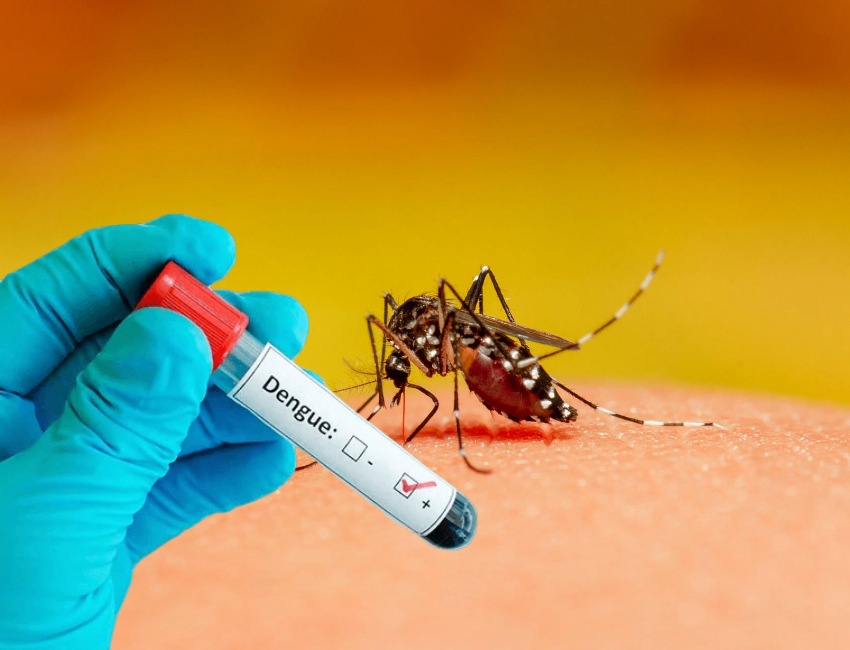Dengue fever is a viral illness that is transmitted to humans through the bite of infected Aedes mosquitoes. It is a significant public health concern in many parts of the world, especially in tropical and subtropical regions.
Symptoms: Dengue fever typically causes flu-like symptoms, including a sudden onset of high fever, severe headache, joint and muscle pain, fatigue, and a rash that may appear on the arms, legs, and torso. Some people may experience vomiting, diarrhea, and abdominal pain. In rare cases, the infection can progress to a more severe form called dengue hemorrhagic fever (DHF), which can be life-threatening.
Transmission: Dengue is transmitted through the bite of an infected mosquito. The Aedes mosquito typically breeds in stagnant water and is active during the day. Travelers to areas with high rates of dengue are at increased risk of contracting the disease.
Prevention: Preventing dengue involves avoiding mosquito bites. This can be achieved by using insect repellents, wearing protective clothing, and sleeping under mosquito nets. Measures to eliminate standing water, such as in flower pots or water storage containers, can also help reduce the breeding of Aedes mosquitoes.
Treatment: There is no specific treatment for dengue fever, but the symptoms can be managed with supportive care, such as rest, fluids, and pain relief. Severe cases of dengue require hospitalization for close monitoring and supportive care, such as blood transfusions and intravenous fluids. Prevention of DHF and other complications of dengue is crucial, as there is no specific treatment for these severe forms of the disease.
Impact: Dengue fever is a significant public health issue, with an estimated 390 million cases occurring each year worldwide. The disease has a high economic burden due to healthcare costs, loss of productivity, and the impact on tourism in affected areas. The burden of dengue is highest in low- and middle-income countries, where healthcare infrastructure and resources may be limited.
Conclusion: Dengue fever is a viral illness transmitted by infected mosquitoes that can cause flu-like symptoms, including high fever, severe headache, and joint pain. The disease can be severe and even fatal in some cases. Prevention of dengue through mosquito control and bite prevention is essential in controlling the spread of the disease. There is currently no specific treatment for dengue fever, but supportive care can help manage symptoms and prevent complications. Dengue fever is a significant public health issue, and ongoing efforts to prevent and control the disease are essential in reducing the burden of dengue on global health.

